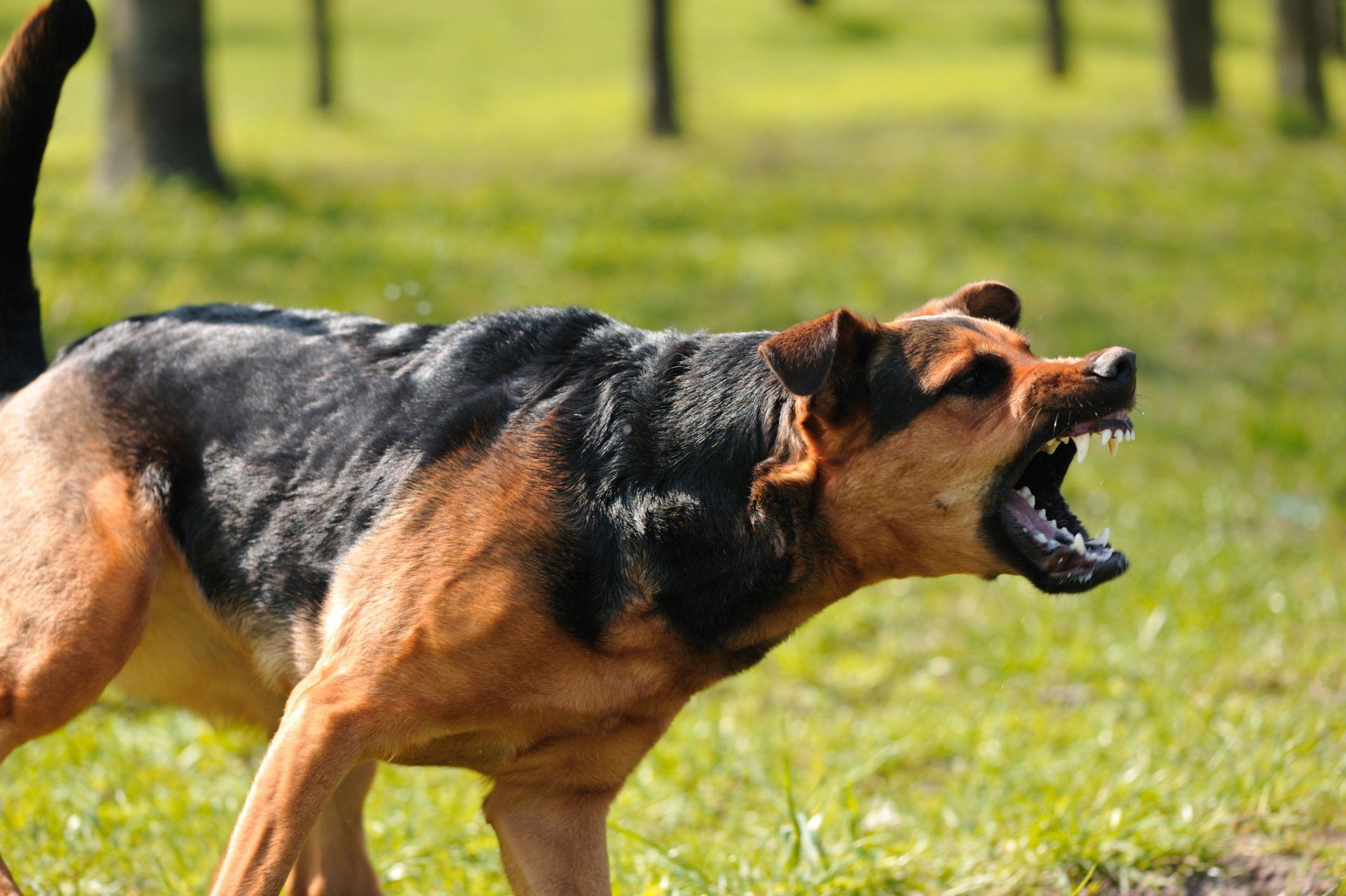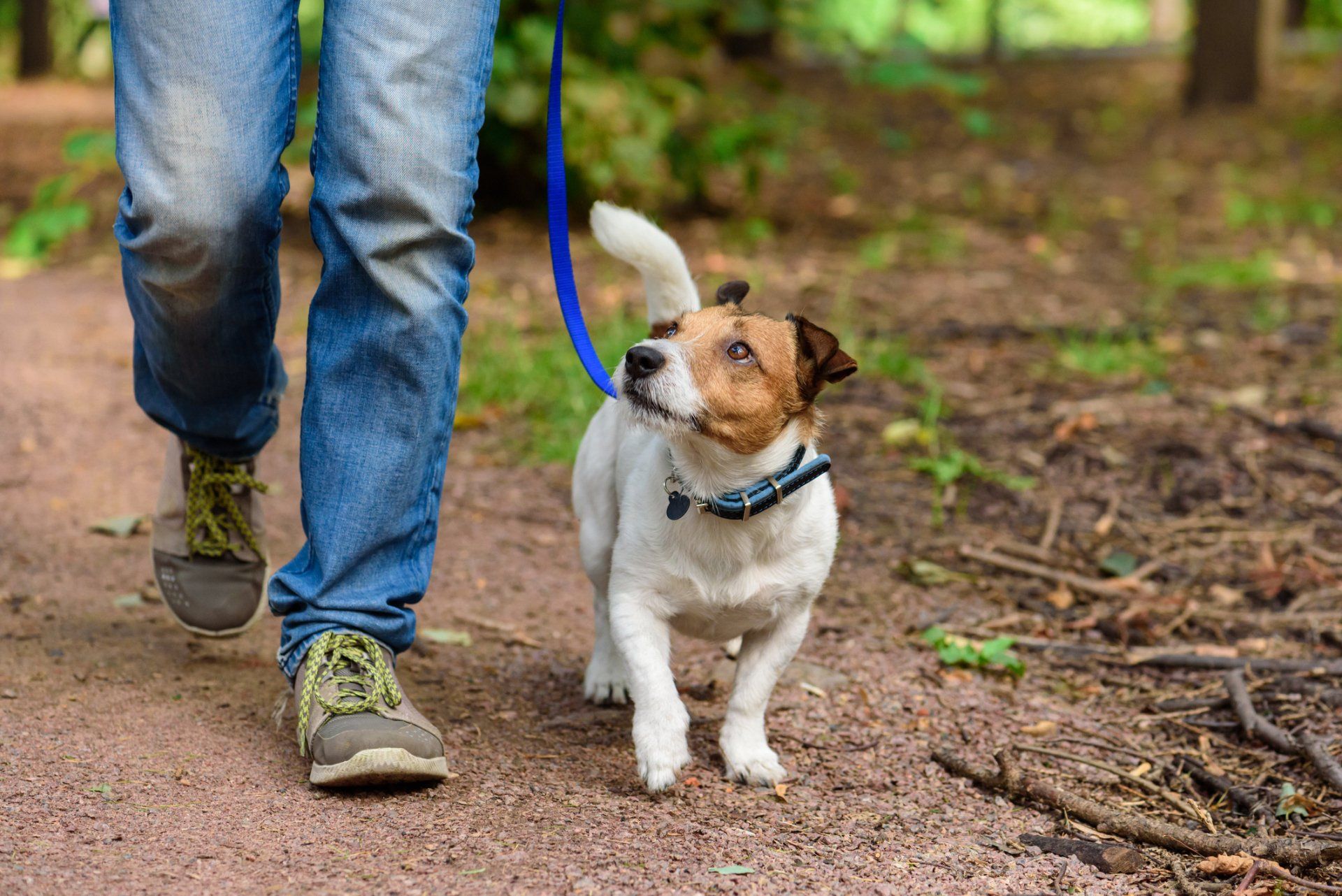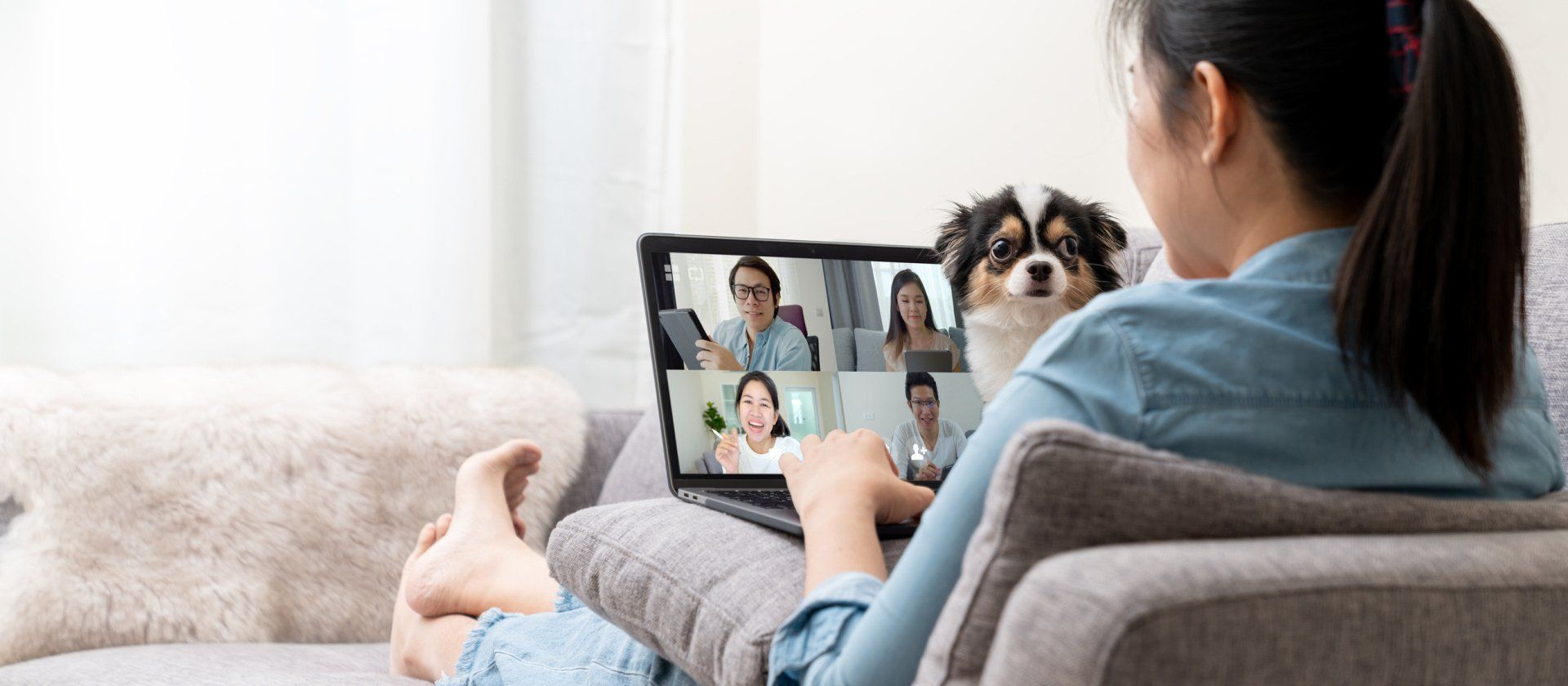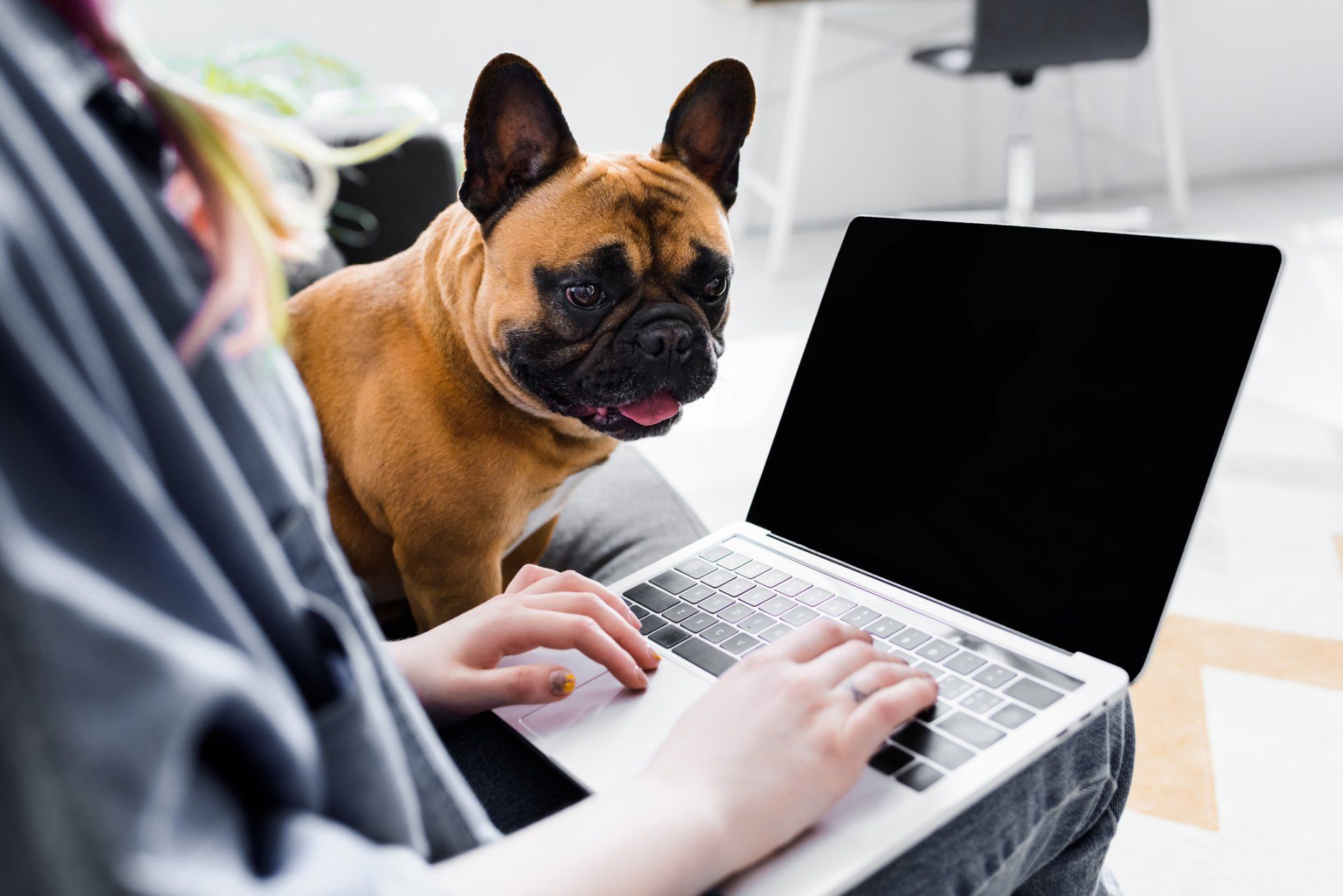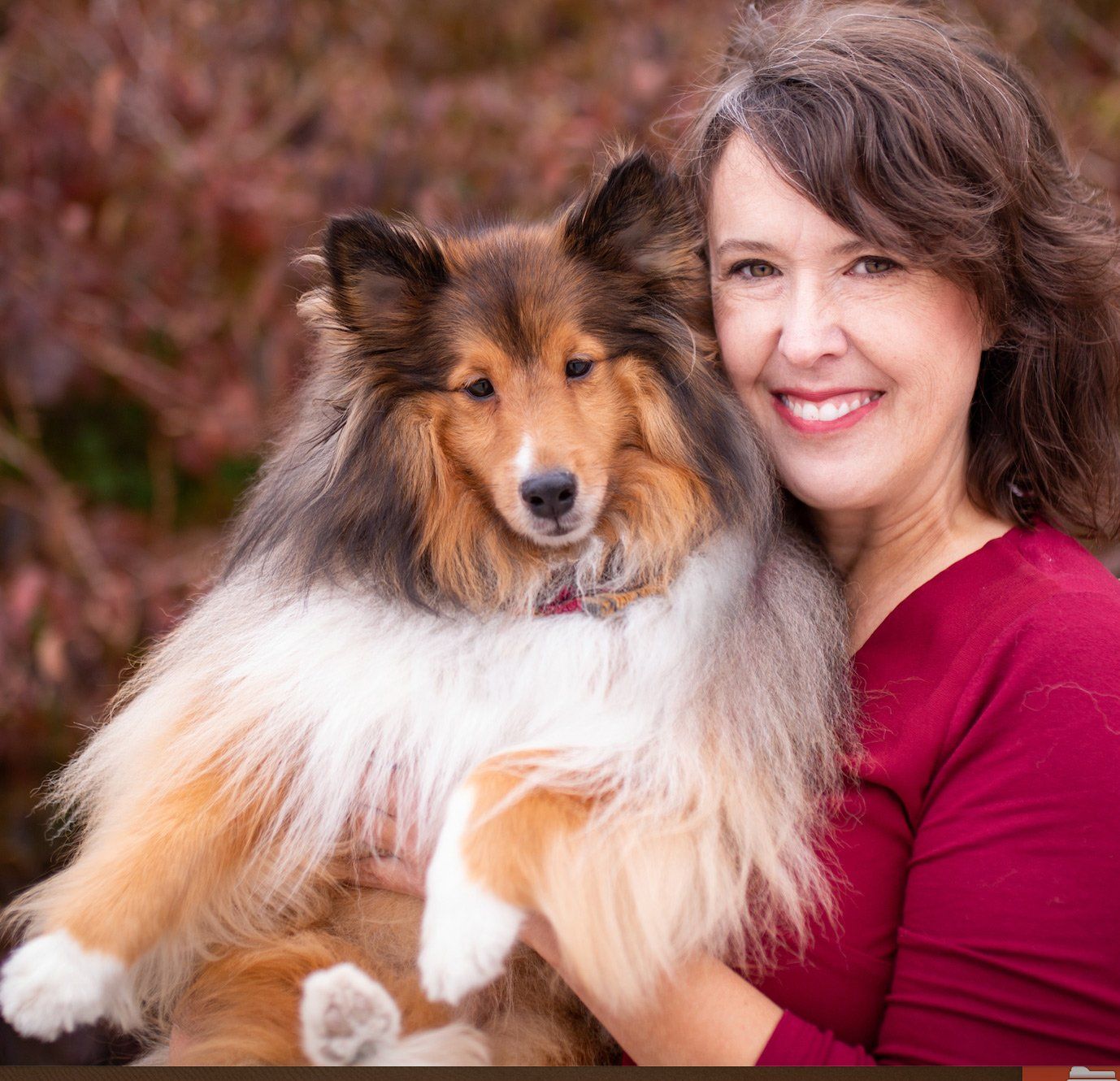A dog a day keeps the doctor away!
Yes. It is a proven fact that people who have dogs are happier and healthier.
Here’s why:
- They fill our heart with love and make it healthy too! Harvard Medical School and The American Heart Association both reference studies that prove that dog parents have overall better heart health. The studies show that having a dog lowers your risk of heart disease. Dog parents have lower blood pressure due to the calming affect that dogs have on their humans. Petting a dog is a proven panacea for high blood pressure. Dog parents also exercise more which includes long walks with their dog. I always tell my students “People who walk their dogs one hour every day do not have heart problems!”. Dog parents walk an average of 300 minutes a week while non dog owners walk an average of 168 minutes. While we aren’t clear on why or how, there is some evidence that parenting a dog is associated with lower cholesterol and triglyceride levels. Dogs also help people manage their stress better which is important for heart health. In other words, having a dog fills and heals your heart with love.
- They provide unconditional love and happiness. The American Kennel Club sites studies that prove that staring into your dogs eyes raises your levels of oxytocin and dopamine also known as the “Love” hormone. Studies also show that pets relieve depression. It’s hard to be lonely and sad when you have a furry friend who is there for you through thick and thin. A study showed that people who don’t live with a human companion but have a pet are 25% less likely to have depression as would people who don’t have a pet. This may be attributed to the fact that your dog makes you more social. You have to get up and take them on walks, to dog parks, to vet visits which allows you to engage with people. A study at the Cummings School of Veterinary Medicine at Tufts University concluded that people who have strong attachment to a pet report that they feel more connected to their human relationships and their communities. The study also showed that teenagers and young adults who grow up with a dog become more confidant and empathetic. NAMI (National Association for Mental Health) reports that being responsible for a dog also helps your mental health as it builds self-esteem. Caring for a dog offers reassurance that you can take care of yourself and another being. I was fortunate enough to work with my first dog Simone in a therapy dog team capacity at St. Elizabeth’s Hospital’s mental health ward for 7 years. Psychiatrists and psychologists would always tell me that Simone knew how to go to the most depressed person in a room and make them feel better. Therapy dogs can improve the psychological well-being of children through cancer therapy as well as individuals diagnosed with post traumatic stress syndrome. I can personally say that I have had my own bouts of depression and that my animals have transformed my whole outlook to the world and my response to it. The love of a dog provides humans with a wonderful outlook on life.
- Dogs sense disease when we cannot. What I find amazing about dogs is the recent studies that show they are able to detect cancer in their human parent long before that of the medical community. There is a new approach to cancer screening whereby the dog is able to detect very low concentrations of the alkanes and aromatic compounds driven by malignant tumors in urine or breath. I recently lost my cousin Valarie to stage 4 cancer. If I could pick one person who I believed loved dogs as much as I did, it would be her. She told me that she should have known something was wrong because her dog Brick was constantly smelling and nuzzling her shoulder where it eventually was discovered was taken over with bone cancer. Those noses of our furry loved ones could be our cancer detection salvation,
- Dog germs make you healthy. All that slobbering and licking and dog dander actually has benefits to your health! Scientists believe that dogs make bacteria in the home and the body more diverse and therefore help strengthen the immune system. This means that they are actually giving us a protective benefit. Americans spend more than 90% of their time indoors which could be a reason why more people are getting asthma and allergies. Without exposure to a diversity of bacteria, the human body’s immune system may miss out on a step in learning to differentiate between dangerous and harmless bacteria. Studies show that children born into a family with exposure to animals had fewer instances of asthma. Being exposed to all the dog bacteria may help the human’s body learn the difference between friendly and unfriendly bacteria. Some studies are showing that having a dog helps the immune system even with babies in the womb. So, embrace your dogs slobbery kisses, it could be the key to your good health!
With all this concern with the Corona virus, for those with a dog, your health is at less of a risk. I am not suggesting dogs would prevent you from getting or curing you from the virus. What we can assume though is that your dog can help you have a stronger, healthier body and immune system to fight it.
Doesn’t all this talk about dogs making us healthy make you love them more than you already do if that is at all possible? I didn’t think I could but I do!

